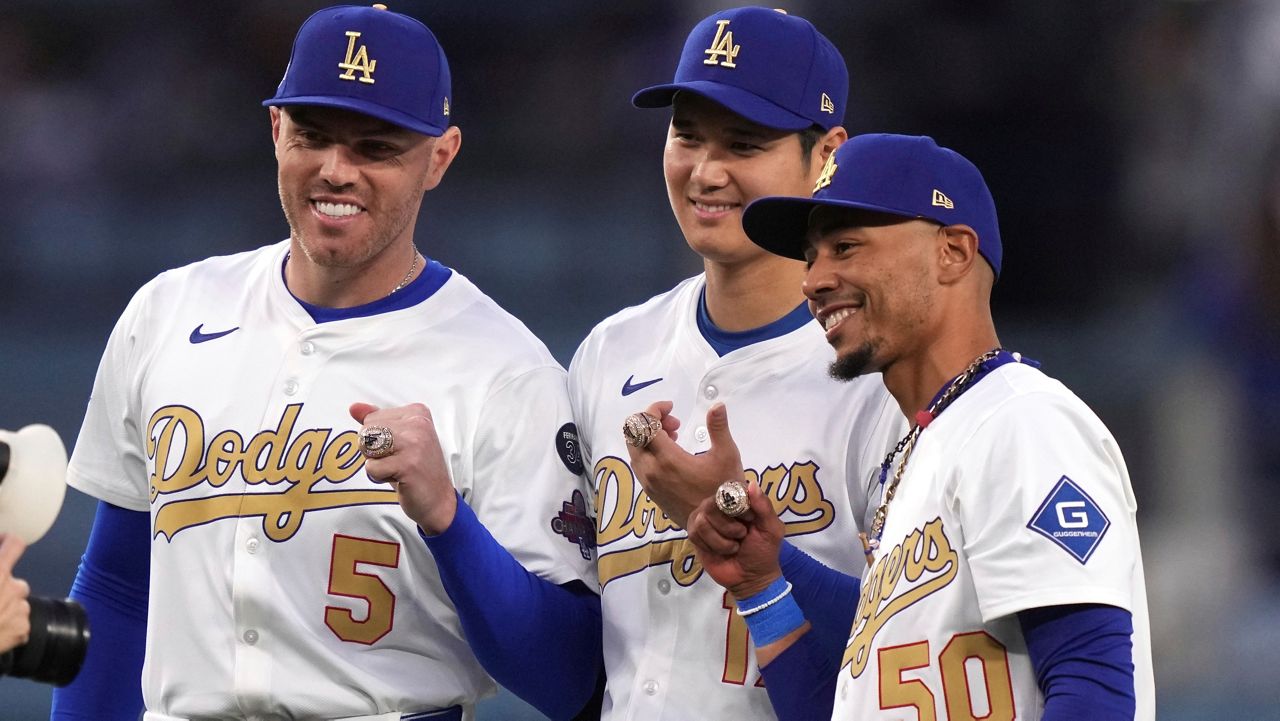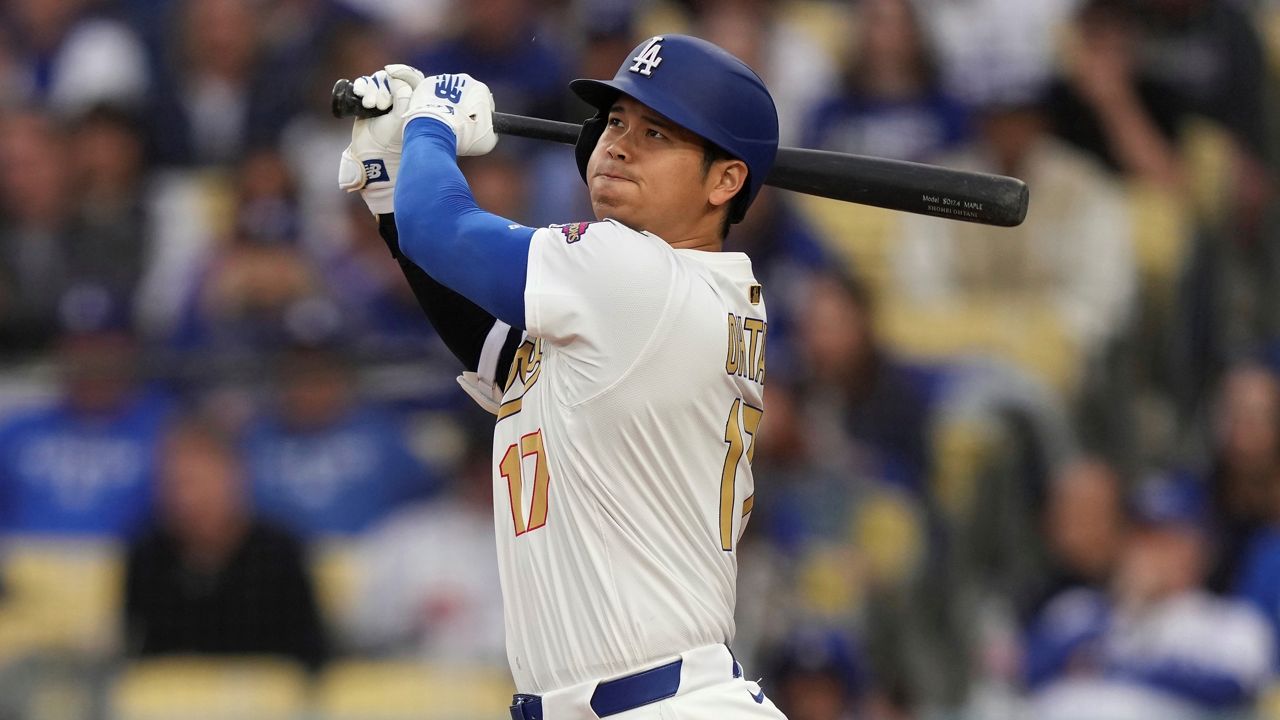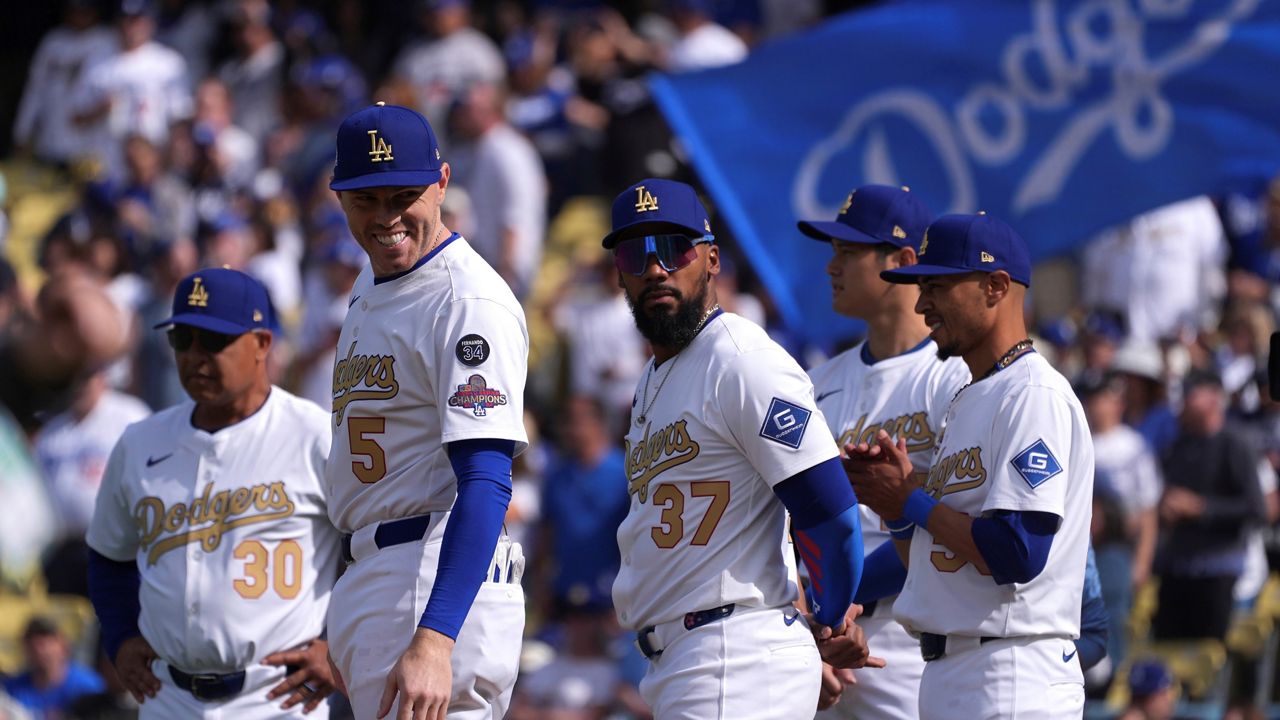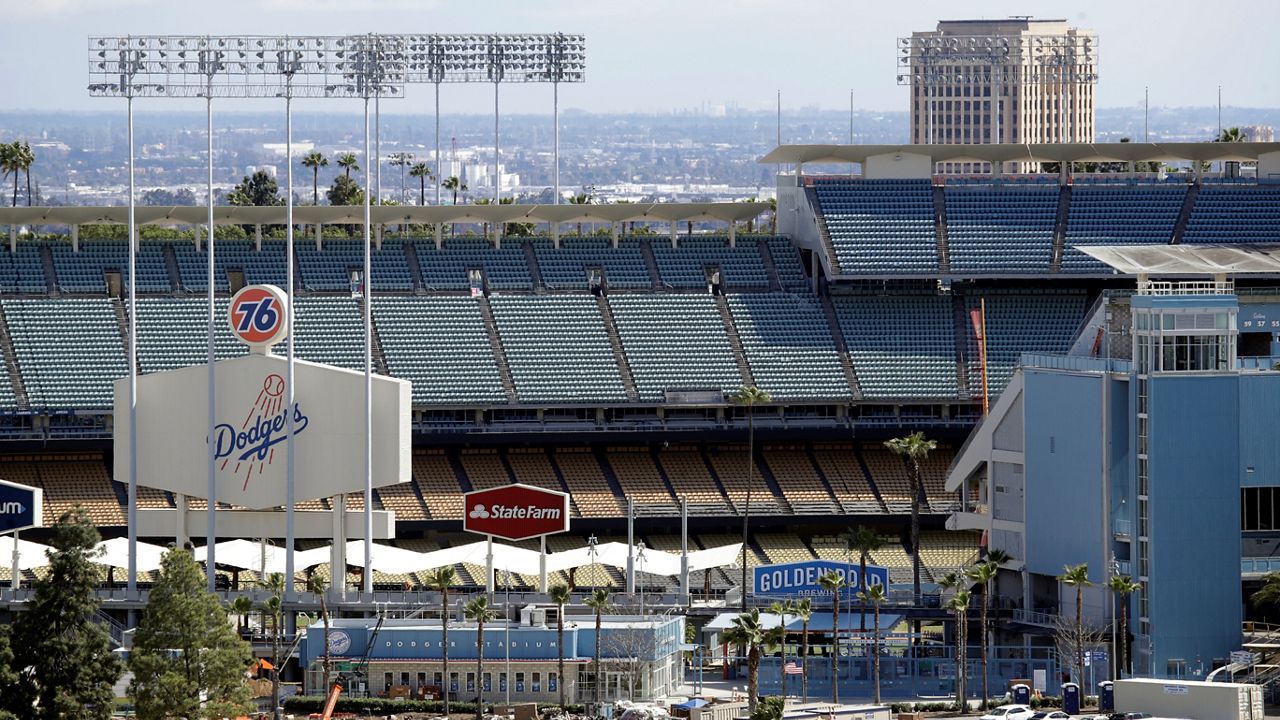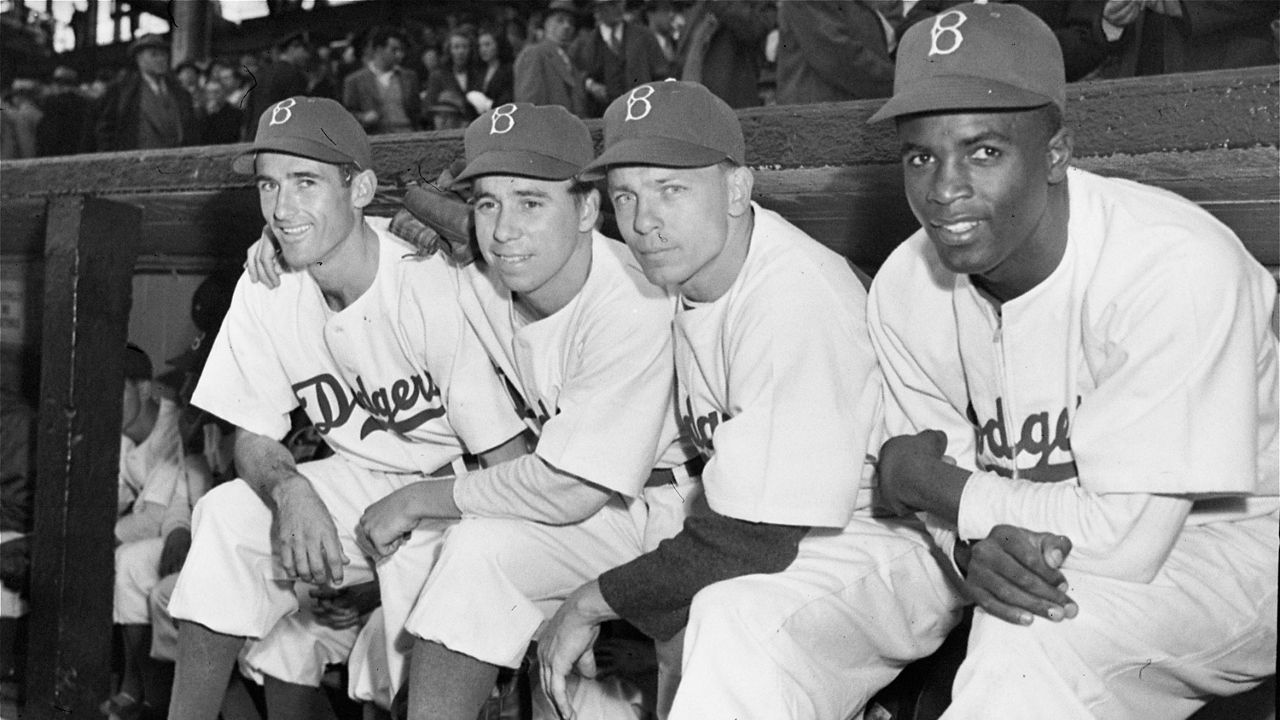LOS ANGELES — Freddie Freeman scooped up his youngest son and held him tight, planting kisses on the blond head of 3-year-old Maximus. The slugger’s wife, Chelsea, corralled their other two sons for a family photo on the Dodger Stadium field where Dad had just created an indelible moment in baseball lore.
Three months earlier, Freddie and Chelsea were at Max’s hospital bedside while he fought for his life after being stricken with Guillain-Barré syndrome.
Max survived and thrived — and he got to watch his father make World Series history Friday night for the Los Angeles Dodgers.
Freeman is still recovering from a badly sprained right ankle, but he had zero trouble rounding the bases after hitting his 10th-inning grand slam to win Game 1 of the World Series over the Yankees. After celebrating with his teammates, he looked even more nimble when he ran and jumped at the screen behind home plate to celebrate joyously with his father.
“It felt like nothing, just kind of floating,” a beaming Freeman said.
“Those are the kind of things, when you’re 5 years old with your two older brothers and you’re playing wiffle ball in the backyard, those are the scenarios you dream about — two outs, bases loaded in a World Series game,” he added. “For it to actually happen and get a home run and walk it off to give us a 1-0 lead, that’s as good as it gets right there.”
After everything the eight-time All-Star has endured since midsummer, it’s clear nothing will stop Freeman this year from giving everything he has — both to his sport and his family.
“He’s doing something that’s basically heroic to put himself in position to play,” Dodgers postseason hero Kiké Hernández said. “Freddie is a grinder. Not too many superstars grind the way Freddie does. He’s a Hall of Famer, and this is a special moment in his career.”
Freeman missed eight games for the Dodgers in July and August after Max fell ill while watching his father at the All-Star Game festivities in Texas.
When the family returned home, Max was hospitalized and put on a ventilator after he experienced partial paralysis and breathing difficulty. He was diagnosed with Guillain-Barré, the rare neurological condition that affects the immune system, nerves and muscles.
Max’s condition gradually improved, and Freeman returned to work Aug. 5. He didn’t hide his tears before or after he received a standing ovation from Dodgers fans who understood the depth of his distress.
Freeman then broke his right middle finger less than two weeks after returning, and he slumped while trying to play with the injury before manager Dave Roberts persuaded him to sit out a series in late August to reset his body.
Max Freeman came back to Chavez Ravine in September to watch the Dodgers down the stretch. The youngster is expected to recover fully, Freeman said.
Through it all, Freeman produced another standout season at first base and at the plate, batting .282 with an .854 OPS, 22 homers, 89 RBIs and 4.7 WAR.
But Freeman badly injured his ankle Sept. 26 in the Dodgers’ regular-season home finale. The Dodgers acknowledged the severity of the sprain would have kept most players out for several weeks during the regular season, but Freeman is determined to gut it out if possible — because it’s October.
He has sat out three postseason games, including two of the final three against the Mets in the NLCS. The Dodgers won anyway, reaching the World Series for the first time in Freeman’s three years back home in his native Southern California.
“There’s been multiple times where we’ve had to go to Freddie and say, ‘Hey, you need to sit this one out,’” slugger Max Muncy said. “‘We’ve got you tonight. You need to rest.’ If you know Freddie, that’s a hard conversation to have. But he knows what’s best for the team, and now he’s feeling like himself enough to do what he did tonight.”
After nearly a week of rest and treatment, Freeman said his ankle “actually felt pretty good” heading into Game 1 against the Yankees.
He showed it in the first inning when he legged out a triple — his first since June 1.
Freeman is only the third player in baseball history to get a grand slam and a triple in a postseason game. Kaz Matsui, who did it for Colorado against Philadelphia in a 2007 NLDS, is the only other player to accomplish the feat since 1920.
In the sixth inning, Freeman watched with awe, his arms folded, as Giancarlo Stanton’s mammoth homer flew deep into the left-field stands for New York.
But 36 years after another veteran Dodgers slugger hit a World Series Game 1-ending homer and limped around the bases in a frenzied Chavez Ravine, Freeman took the same hobbled jog in the deafening din of October celebrations.
Kirk Gibson created one of the most iconic moments in Dodgers history in 1988. Freeman’s blast was eerily similar, even landing in roughly the same part of the Dodger Stadium bleachers — with brake lights from early-departing fans visible in the parking lots beyond.
“Everything was the same outside of the fist pumps,” Roberts said.
Muncy hit his own World Series game-ending homer in the 18th inning of the Dodgers’ victory over the Boston Red Sox in 2018, albeit in Los Angeles’ only victory in the series.
“When I hit mine, you kind of black out in that moment,” Muncy said. “With this one, I could see the reactions. Feel the ground shaking. I was standing next to Dave, but as soon as (Freeman) hit it, I just launched my bat.”
Freeman’s homer will be immortalized in Cooperstown: He has agreed to give his cleats to the Baseball Hall of Fame — but only after the World Series is over.







